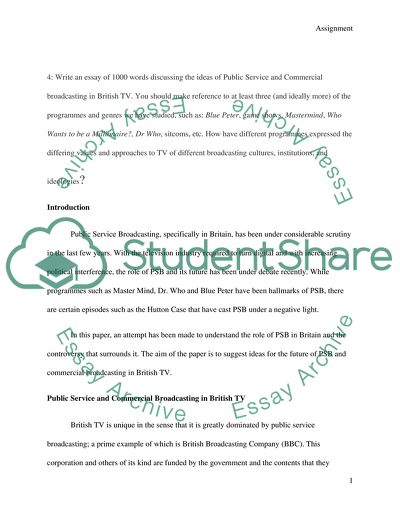Cite this document
(“Public Service and Commercial Broadcasting in British TV Assignment”, n.d.)
Public Service and Commercial Broadcasting in British TV Assignment. Retrieved from https://studentshare.org/media/1791408-discussing-the-ideas-of-public-service-and-commercial-broadcasting-in-british-tv
Public Service and Commercial Broadcasting in British TV Assignment. Retrieved from https://studentshare.org/media/1791408-discussing-the-ideas-of-public-service-and-commercial-broadcasting-in-british-tv
(Public Service and Commercial Broadcasting in British TV Assignment)
Public Service and Commercial Broadcasting in British TV Assignment. https://studentshare.org/media/1791408-discussing-the-ideas-of-public-service-and-commercial-broadcasting-in-british-tv.
Public Service and Commercial Broadcasting in British TV Assignment. https://studentshare.org/media/1791408-discussing-the-ideas-of-public-service-and-commercial-broadcasting-in-british-tv.
“Public Service and Commercial Broadcasting in British TV Assignment”, n.d. https://studentshare.org/media/1791408-discussing-the-ideas-of-public-service-and-commercial-broadcasting-in-british-tv.


